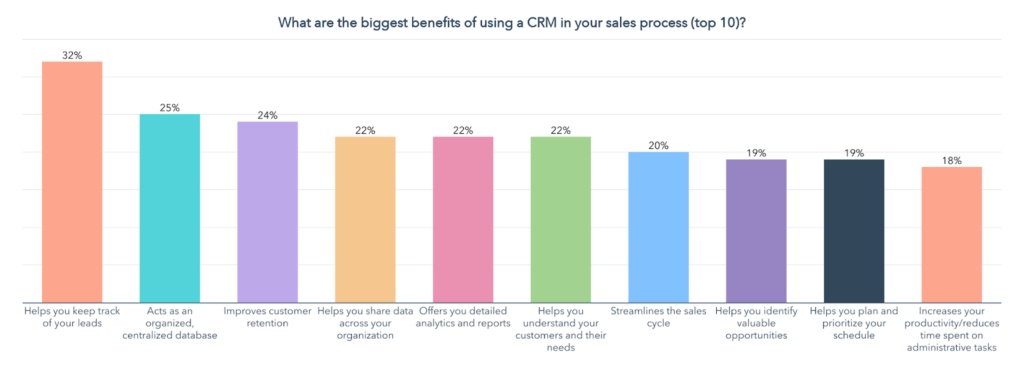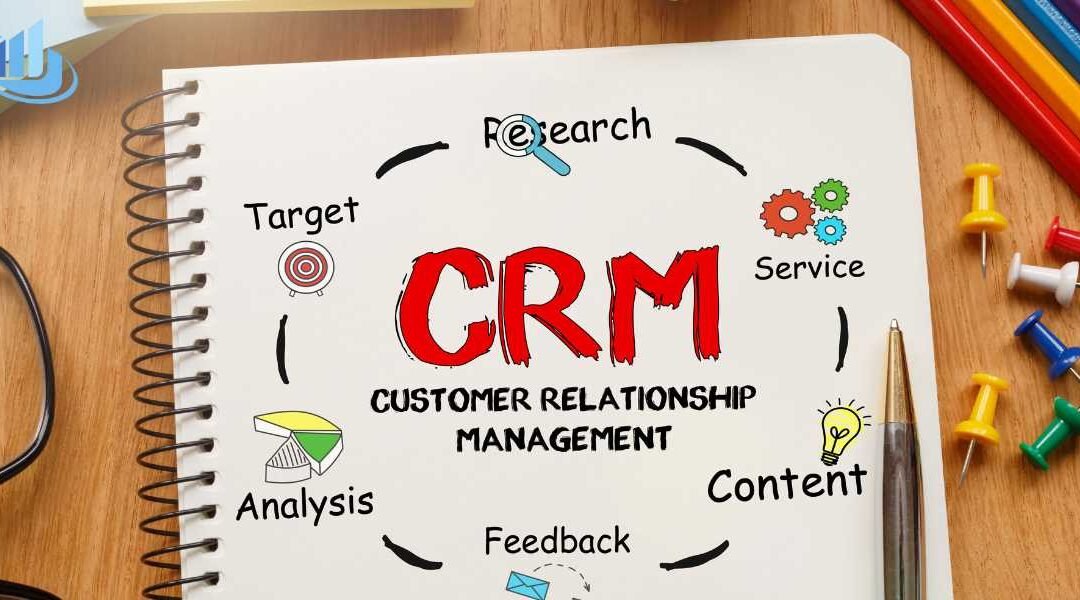A Customer Relationship Management (CRM) system is essential for consolidating, organizing, and overseeing all customer-related data. It enables you to monitor each individual’s buying journey, streamline communication, enhance customer interactions, and refine data management.
According to Baker (2022), in the “2022 Sales Strategy and Trends Survey,” high-achieving salespeople are more likely to consider their CRM system crucial to their sales strategy than those who did not meet their targets. As reported by salespeople, the main advantages of a CRM include tracking leads, serving as a centralized database, boosting customer retention, and facilitating data sharing within the organization.

Image source (Iskiev, 2023)
Why CRM Matters
A CRM system efficiently manages all customer information, allowing businesses to track interactions, improve communication, and optimize data handling.
Baker (2022) highlights that valuable leads can be overlooked as businesses expand rapidly, but an integrated CRM like HubSpot can address these challenges by focusing on the customer experience. HubSpot’s CRM aligns sales, marketing, and service teams, making it easier to center business efforts around customer needs and streamline the buyer’s journey.
Key CRM Benefits
- Enhanced Business Growth: HubSpot’s CRM reduces friction during growth phases by keeping all customer interactions and experiences at the forefront, ensuring alignment across various business functions.
- Improved Team Alignment: Effective CRM systems facilitate coordination between sales and marketing teams, sharing essential data and creating a consistent customer experience. This alignment is increasingly valued, with 45% of salespeople recognizing its growing importance from 2021 to 2022 (Baker, 2022).
- Efficient Data Management: HubSpot automates data synchronization and updates, ensuring accurate and current customer records are accessible to all team members.
- Automation of Routine Tasks: CRM platforms like HubSpot automate repetitive tasks, including follow-up communications, email sequences, and lead assignments, thereby increasing efficiency.
- Customizable Workflows: HubSpot offers customizable workflows to automate and organize sales, marketing, and service processes, saving time and improving productivity.
- Simplified Customer Interactions: With tools for call tracking, live chat, email, social media, and video integration, HubSpot’s CRM supports diverse customer engagement methods.
- Custom Dashboards and Reporting: HubSpot enables users to create tailored dashboards and reports to analyze key metrics and identify growth opportunities, enhancing overall business performance.
For further details, refer to Baker’s article: “The Importance of a CRM: Why Your Company Needs a CRM to Grow Better” (2022), available at HubSpot Blog.

